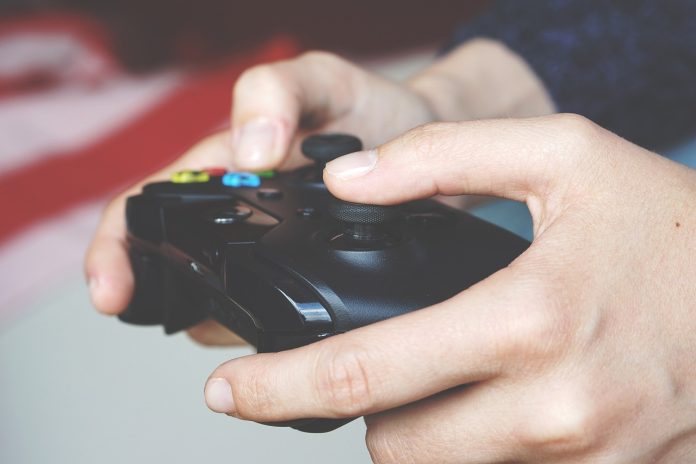Mobile gaming has become a new normal in modern-day life, with millions of people logging in to play their favourite games on their smartphones daily. We all love candy crush, and kids love to play adventure games. There are also multiple role-play games for fans. Regardless of your choice, there is nothing like sitting back with a game leisurely.
However, in Britain, this trend has reached a whole new level. Our country has developed an obsession with mobile gaming that shows no signs of slowing down. According to Statista, mobile game users are expected to amount to 30.15m users by 2027.
While some experts view this as harmless entertainment, others, argue it could be a slippery slope into unmanageable compulsive behaviours.
The allure of mobile gaming
Have you ever lost yourself in a mobile game on your phone or tablet? If so, you’re not alone. Mobile gaming has become incredibly popular in recent years, and it’s not hard to see why. Mobile gaming is a term that describes any game played on a mobile device, such as a smartphone or tablet.
Mobile gaming began in the 1980s when arcade machines were converted into home consoles that could be played on televisions instead of in arcades. The popularity of these devices led to the creation of dedicated handheld consoles such as Game Boy in 1989, which allowed players to take their games with them wherever they went–and eventually led to today’s smartphones!
You might wonder why. One of the main reasons we are drawn to mobile gaming is its convenience. We always have our phones with us, so it’s easy to pull up a game and start playing whenever we have a spare moment. Mobile gaming can help pass the time and keep you entertained.
Another thing about mobile gaming is that it’s affordable. Many games are free to download and play, while others are available for just a few dollars. This makes it accessible to a wide range of people, regardless of their budget. And let’s not forget about the variety of games available. There are many types of mobile games, from puzzle games to action-packed shooters to immersive role-playing games.
Is Britain obsessed with mobile gaming?
The UK mobile gaming market is now growing at a rapid pace. According to a survey conducted between October and December 2021, 37% of UK adults aged 16 years and older played games on their mobile phones. This slightly decreased from the 39% reported in a previous survey. Regardless, they are both high compared to previous years. Furthermore, according to the World Health Organization, up to 3% of people who play video games have a video game addiction.
As of the third quarter of 2021, gaming apps were the most popular category on both the Apple App Store and the Google Play Store. On the Apple App Store, gaming apps accounted for 22.2% of all available apps, while on the Google Play Store, they accounted for 28.8%.
Mobile gaming addiction
While mobile gaming can be a fun way to pass the time, it can also become habit forming. Gaming addiction can be tough to deal with, and it’s essential that we talk about it. Simply put, it’s when someone plays mobile games to the point where it affects their life negatively. This can mean playing for hours, losing sleep, neglecting responsibilities, and spending too much money on in-game purchases.
It’s easy to see how this can happen – mobile games are designed to be addictive. They’re made to keep you coming back for more, with rewards for completing tasks and notifications that draw you in. It’s no wonder some people find themselves playing for longer than they intended.
The World Health Organization defines gaming addiction as a pattern of compulsive behaviour characterised by impaired control over gaming. The person gives more priority to gaming over other activities. They also continue gaming despite the occurrence of negative consequences.
Also, the American Psychological Association defines Internet Gaming Disorder (IGD), including mobile gaming, as experiencing at least five of nine criteria over 12 months, including;
- Gaming preoccupation
- Withdrawal and tolerance
- Loss of interest in other activities
- Downplaying use
- Loss of relationships, educational, or career opportunities
Consequences of mobile gaming addiction
Now, let’s talk about the consequences of mobile gaming addiction. Mobile game addiction has various effects on mental and physical health.
One of the most significant impacts is the amount of screen time it can lead to. Spending excessive time staring at a screen can cause eyestrain, headaches, and even vision problems. It can also take a toll on our sleep routine, as the blue light from screens can interfere with our body’s natural sleep-wake cycle, making it difficult to fall asleep at night and causing daytime fatigue.
Additionally, mobile gaming addiction can negatively impact our focus and concentration levels. When we play games for extended periods, our brains become overstimulated, making staying focused on other tasks challenging. This can affect our productivity at work or school and lead to missed deadlines or poor performance.
Mobile gaming addiction can also cause us to neglect other responsibilities, such as spending time with loved ones or pursuing hobbies and interests. It can lead to social isolation, which can harm our mental health.
As a society, we have a collective responsibility to address the mobile gambling trend and prevent individuals from developing gambling addiction in the first place. Therapy for gaming addiction is becoming more popular in England as the stigma surrounding gaming disorders is starting to change.
- Educate and raise awareness about the risks of mobile gambling: It is essential to educate the public about the dangers of mobile gambling and the potential negative consequences of addiction. This can be done through public information campaigns, school education programs, and community outreach initiatives.
- Implement responsible gambling measures: It is vital to implement reliable gambling measures, such as age verification checks, deposit limits, and self-exclusion programs, to help individuals struggling with gambling addiction.
- Encourage the development of responsible gambling apps: Mobile gambling apps should be developed with responsible gambling features that help individuals keep track of their spending and ensure they are not engaging in risky behaviour.
- Advocate for stricter regulations: Lawmakers and regulators should be encouraged to enact more stringent regulations to protect vulnerable individuals from mobile gambling addiction.
- Support treatment for gambling addiction: Individuals struggling with gambling addiction should be able to access effective treatment and support services. More resources should be allocated to providing these services to those who need them.







